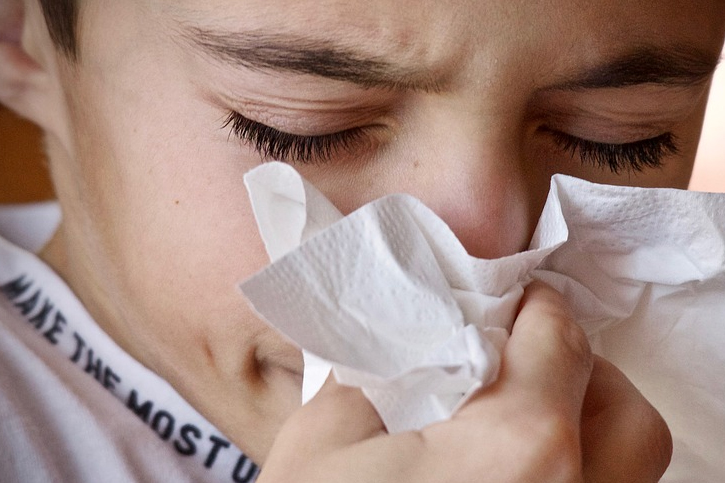Discovering molds on a building is major cause for alarm for most homeowners, yet people are still unaware of the effects of molds on health. Mold is a collective term that connotes various types of naturally occurring fungi that grow in filaments and normally reproduce by forming spores that travel through the air. Molds can be found anywhere as long as there are moisture and oxygen, but tend to thrive in warm damp environments. In our houses, the common places you can find molds include toilets, baths, showers, kitchens, basements, laundry rooms and under the sink. Some types of molds are referred to as mildew and while they may not be dangerous in themselves, they can release toxins, known as mycotoxins, into the air we breathe causing mold poisoning.
What is Mold Poisoning?
Not all types of molds are harmful. For instance, penicillin is used in antibiotic medication. However, when the tiny cells (spores) are inhaled, they can cause respiratory issues, compromise our immune system or cause allergic reactions. Mold exposure can be severe or mild depending on how a person’s immune system responds to the presence of the spores in the body.
There are many types of molds but the most common ones that are found in households include:
- Cladosporium
- Penicillium
- Alternaria
- Aspergillus
- Stachybotrys chartarum (Stachybotrys atra) also known as ‘Black mold
Mold Poisoning Symptoms

The symptoms may manifest differently from one person to another. If you don’t have a respiratory problem, look out for these symptoms:
- Itchy skin
- Itchy eyes, throat, and nose
- Coughing
- Stuffy nose
- Watery eyes
- Sneezing
- Wheezing
If you have allergies or asthma, the symptoms may be more severe. Look out for these signs:
- Chest colds
- Fatigue
- Headaches
- Sinusitis
- Fever
- Difficulty breathing
- Coughing, especially at night
- Allergic reactions
Long-term exposure to molds can lead to severe symptoms, including:
- Anxiety
- Insomnia
- Memory loss or confusion
- Lack of focus or concentration
- Muscle cramps
- Stomach pains or unusual pain
- Unexplained weight gain
- Numbness in feet and hands
- Light sensitivity
Mold spores can trigger asthma attacks in people who are allergic to molds and have asthma. The severity of mold symptoms varies from one individual to another depending on their level of susceptibility to mold and the type of mold one is exposed to.
Diagnosing Mold Poisoning
As you can see, the symptoms of mold exposure are similar to other common respiratory disorders, which makes it difficult to tell if you’ve inhaled mold toxins. Medical tests (blood tests and allergy tests) are more reliable in diagnosing the presence of mold-specific antibodies. Assessment of your house will also help in revealing the mold levels and type in your home to make it easier to know the type of treatment to offer. Blood tests involve taking blood samples to the lab for analysis. Doctors test for the reaction of certain types of antibodies in your immune system in response to different mold species. The diagnosis helps doctors to determine whether the symptoms are related to mold poisoning. Skin prick tests involve applying small amounts of mold using a tiny needle. If you’re allergic to that species of mold, your skin will break into a rash, hive or bumps.
Treatment of Mold poisoning
If doctors determine that a person’s symptoms are caused by mold allergy, they can administer the following treatments:
- Decongestants: Decongestants can either be prescriptions or over-the-counter medications to help clear blocked nasal passages.
- Antihistamines: Antihistamines are used to treat and prevent allergic symptoms. These medications can also be administered over-the-counter or as prescriptions. They can be taken in tablet form, eye drops, or nasal sprays.
- Immunotherapy: Immunotherapy or allergy shots are administered on a long term basis, usually several months of regular injections. These treatments are used to improve a person’s tolerance to allergens by gradually exposing them to the allergen.
How to Prevent Mold Exposure
Outside the house:
- When taking part in outdoor activities, such as cutting grass, digging around plants, basically handling plants, wear a dust mask.
- Limit working in areas with a high possibility of mold growth, like handling decomposing wood or plants.
Inside the house:
- Reduce the amount of moisture in the air using a dehumidifier, especially in areas likely to be damp.
- Strive to keep surfaces, carpets, and walls dry.
- Ensure rooms are well ventilated during cold weather.
- Don’t put carpets in damp areas. Likewise, use exhaust fans in damp areas like kitchens and bathrooms.
- Run regular maintenance on pipes, air conditioners, and gutters to ensure that there are no leaks.
- Look out for hints of leaks on the ceiling, baseboards, and walls.
- Use mold-killing products to clean damp areas.
- Try as much as possible to keep humidity levels low.
- Add mold inhibitors to household paints.
Conclusion
Mold poisoning can cause serious health issues that may interfere with daily routines. Issues such as memory loss, anxiety and losing focus will affect your productivity and force you to quit your job. Therefore, make sure you get rid of molds in and around your home. If you detect molds, you can always seek professional services to remediate the molds for you.

